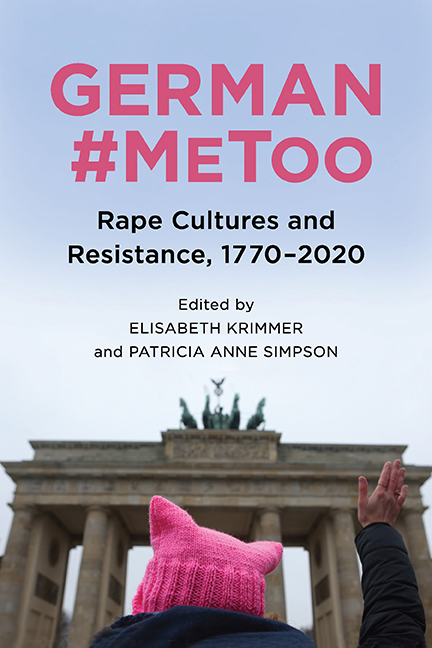14 - Patriarchy, Male Violence, and Disadvantaged Women:Representations of Muslims in the Crime TelevisionSeries Tatort
Published online by Cambridge University Press: 08 October 2022
Summary
ON DECEMBER 30, 2007, an estimated thirty thousandAlevi Muslims protested in Berlin against theTatort (Crime Scene)episode “Wem Ehre gebuhrt” (To Whom Honor Is Due).The protestors argued that the episode, whichrevolved around a father raping and impregnating hisyoungest daughter and killing his older daughterbecause she planned to report the rape to theauthorities, misrepresented Alevi Islam. Roughly tenyears later, after the 2015/16 New Year's Evecelebrations in Cologne, when hundreds of women weresexually assaulted and several raped, news mediawere quick to report that most offenders wereidentified as Muslim immigrants. These incidentsframe a problematic perception of Muslim life inGermany, bolstered by a tendency in the media toexploit isolated negative incidents, such as abuse,rape, and honor killings, when reporting on Islam.This depiction of Muslim life has had an impact onGerman anti-immigration politics: it contributed tothe success of right-wing movements like PEGIDA(Patriotische Europaer gegen die Islamisierung desAbendlandes; Patriotic Europeans against theIslamization of the West) and the rise of thepolitical party Alternative fur Deutschland (AfD;Alternative for Germany). In this chapter, Iinvestigate the interrelationships between therepresentation of Muslim gender stereotypes in themedia—specifically, in the popular Tatort series—and thecriminalization of Islam in German society moregenerally. The instrumentalization of genderconstructs and violence against women in the serviceof xenophobic discourses situates this investigationat the nexus of Muslim identity and the emergence ofthe #Metoo movement in the Federal Republic.
When the #MeToo movement reached Germany in 2018 afterthe accusations against filmmaker Dieter Wedel, itgenerated extensive media coverage and revived apublic debate about Islam. It particularly refueledcriticism of patriarchal structures, abuse, theobjectification and lack of agency of women intraditional Muslim families, and, mostcontroversially of all, honor killings. The latestpublic debates on this topic once again ask how wellintegrated Muslims really are into German societyand what role the media has played through itscoverage of Muslim life. Analyzing mediarepresentation of Muslims, Rod Gardner, YaseminKarakaşoğlus, and Sigrid Luchtenberg concludethat
the portrayal of migrants in the German media ismainly one in which their roles are those ofvictim or perpetrator, and far less often one oftheir relationship to German society or thestate.
- Type
- Chapter
- Information
- German #MeTooRape Cultures and Resistance, 1770-2020, pp. 321 - 345Publisher: Boydell & BrewerPrint publication year: 2022



